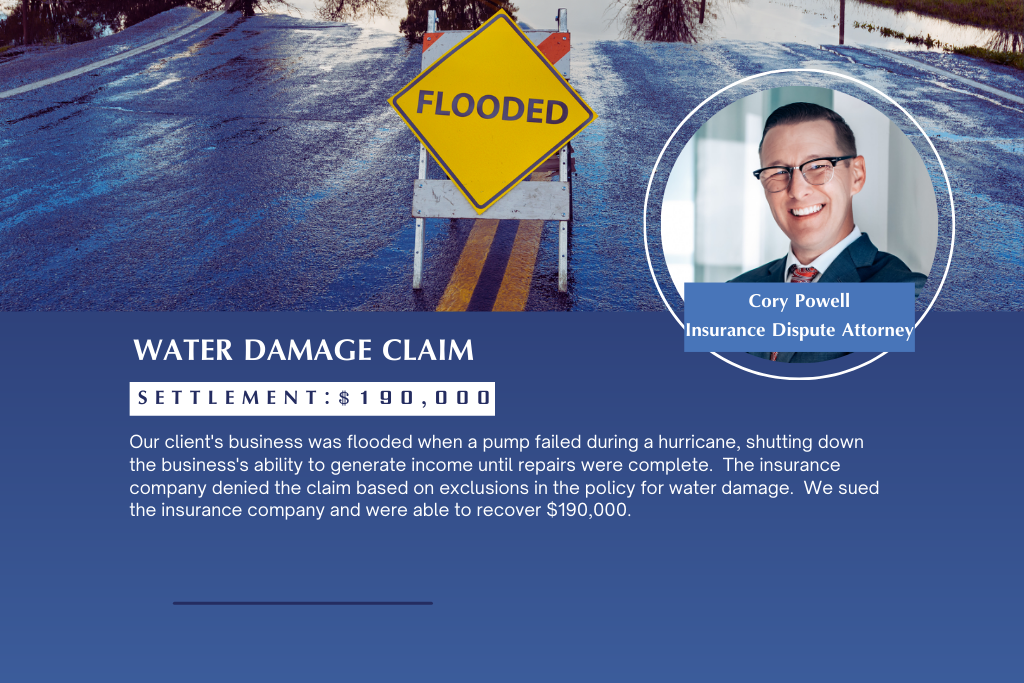No one wants to think about flood waters rising up and consuming their towns, but flooded homes are a reality for thousands of Americans each year. In fact, more than 41 million people live within a flood-zone, which means they only have a few hours (and sometimes only a few minutes) to collect their belongings and evacuate when the water level starts to rise.
Living through a flood is terrifying, but the days following the event can be just as confusing and overwhelming. Unfortunately, you don’t have time to process everything around you; you need to act. Follow these steps during the first 24 hours after a flood to start getting your life back on track.

The Cliff Notes: Key Takeaways From This Post
We listed a guide on what to do in the first 24 hours after a flood; however, here are the key bullet points if you are in a rush:
- Let an extended family member know you are safe, and designate them as a spokesperson to post updates on your behalf.
- Do not enter home until it is deemed safe and the power switch is off.
- Gather papers, document evidence of flood damage, take photos and videos of water damage.
- Contact your insurance company and start the cleanup process, avoiding contact with flood water.
- If not satisfied with the insurance company’s response, contact a legal team such as Herman & Wells to help.
Let Your Extended Family Know That You Are Safe
Reach out to a family member outside of the flood zone and let them know that you are safe. Designate this person as a spokesperson for your friends and family. They can post updates on Facebook or contact other relatives on your behalf while you get back to your home and start to clean up. Designating someone to speak for you will allow you to save your battery life and focus on your house instead of checking in with well-meaning relatives.
Do Not Enter Your Home Until It Is Safe
We understand that you want to get back inside your home. You want to see what is left of your memories and gather any belongings that survived the flood. However, you need to stay outside of your home until the authorities have deemed it safe. You also need to make sure that the main power switch is shut off. If it isn’t, call a qualified electrician to do so. Electrocution is a hidden danger during a flood. Belongings can be replaced, people cannot. Make sure the situation is safe before you go inside.
Gather Papers and Document Evidence of the Flood
When you are able to enter your home, carefully gather important papers that survived the flood waters. If you don’t have a safe place to store them, place them in a freezer until you need to review them. Start to make note of which important documents will need to be replaced (like birth certificates or home deeds).
During this time, take photos and videos of the water damage. Get as much visual evidence as you can from multiple angles. This will help you prove to the insurance company the true extent of the flood-damage.
Contact Your Insurance Company
If there is extensive flooding in your area, then there are likely hundreds (if not thousands) of homeowners calling their insurance providers filing claims and requesting coverage. Call as soon as you can so you can get a jump on collecting paperwork and moving the claims process forward.
If you’re not sure what documents you need to file a successful claim, talk to your insurer. They can tell you exactly what information you need to be successful throughout the claims process.
Begin the Cleanup Process
Don’t let the cleanup process overwhelm you after a flood. Start by draining water from your home. You should try to drain a third of the water each day. Once the standing water is removed, use a shop vacuum and a mop to remove the rest of it and begin the sanitizing process.
As you start to clean, wear gloves, a face mask, and other protective gear. Avoid contact with flood water or anything that came into contact with it. These items could have dangerous bacteria on them.
In a perfect world, your insurance provider will help you through the flood process every step of the way. However, not all homeowners are that lucky. If your home was damaged by flooding and your insurance company isn’t willing to compensate you, contact the legal team of Herman and Wells. We specialize in property damage and insurance disputes and aren’t afraid to go toe-to-toe with your insurance provider.

